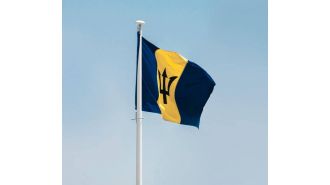Farmworkers in Mississippi are suing a grower for giving preference to white foreign labor and paying discriminatory wages.
Suit alleges pay discrimination on farm, as Black workers were paid $10/hr while foreign workers were paid more.

In a joint effort, Texas RioGrande Legal Aid, Southern Migrant Legal Services, and the Mississippi Center for Justice announced on May 15th that they had filed a lawsuit on behalf of five Black U.S. farmworkers. The legal action was directed at Gregory Carr, whom the suit claims had discriminated against the workers by favoring white foreign laborers over them. As a result, the plaintiffs had lost thousands of dollars in wages.
The lawsuit was filed in federal court in Greenville, Mississippi, and alleged that Carr's misuse of the H-2A visa program was a determining factor in his decision to not rehire Michael Anthony Nash, Jimmy Shaw, Vinnie Cason, Grant Lewis, and Charleston Taurvonta Harris. These individuals, who are all natives of Mississippi, had previously worked for Carr as either migrant or seasonal farmworkers.
The suit also argued that Carr had paid the Black workers, including the plaintiffs, a lower wage of $10 per hour, while the foreign workers received higher pay. In addition, Carr had misclassified the Black American workers as independent contractors, which meant that he had not made the necessary contributions and tax payments as an employer.
According to Kimberly Jones Merchant, the President and CEO of the Mississippi Center for Justice, this intentional underpayment and misclassification of Black farmworkers in favor of white foreign labor is not only a violation of federal law but also a common practice in the Mississippi Delta. This has resulted in generations of oppression and exploitation for Black agricultural workers in the community.
As Merchant mentioned, this was the ninth case filed by SMLS and MCJ challenging the discriminatory practices of farmers in the Mississippi Delta. The previous eight cases had been resolved in favor of the local workers and had resulted in significant wage recoveries. These workers had argued that the misuse of the visa program had caused them to lose wages.
Marian Delaney from SMLS emphasized that federal protections for American workers are only effective if they are enforced. She stated, "This case shines a light on how the H-2A program can be manipulated to exclude and underpay Black American workers. These federal protections only hold meaning if we take action to enforce them - which is exactly what our clients are seeking through this lawsuit."
In a similar case that was resolved in April 2024, a judge had arbitrated and reached a mutual agreement between the parties involved. Hannah Wolf, an attorney who represented 14 workers in that case, stated that SMLS would continue to pursue legal action in cases where American workers were replaced by foreign workers due to the intentional misuse of the H-2A program. Wolf said, "The H-2A program requires employers to first try and hire local workers, but we continue to receive reports from U.S. workers who have been pushed out of their jobs and replaced with guest workers. We will continue to investigate these claims and take legal action when necessary."
Rob McDuff, one of the lawyers for MCJ, added that they hoped their legal efforts would send a message to farmers in the Mississippi Delta, and across the country, to pay fair wages to local workers. The case highlights the issue of Black American workers being paid less than their foreign counterparts, which is a form of discrimination that needs to be addressed and rectified.










